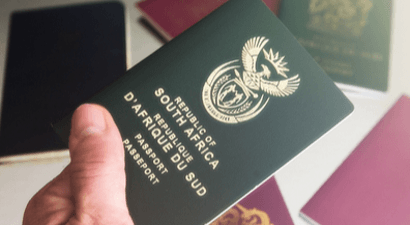Immigration Law Update - Ship's Employees - AHOY!
On 15 May 2014 Home Affairs issued a Directive stating that applications for visitor visa's incorporating the right to conduct business must be submitted at its Missions abroad for first applications, with immediate effect.
Previously there had been a distinction between applicants from Visa Exempt and Visa Restricted countries, where Visa Exempt applicants were allowed to enter South Africa and get their visitors visas at their port of entry. This is no longer the case. Home Affairs has placed this process now entirely within the discretion of the Mission abroad to issue the visas or a letter (whereby the endorsement is collected at the port of entry).
Mr. Mkuseli Apleni, the Director General of our Department of Home Affairs, tasked with the practical implementation of our new immigration laws, explained this approach at his recent briefing to the Home Affairs Parliamentary Portfolio Committee on 26 August 2014 as allowing the implementation of the risk-based approach to immigration management, including the verification of applicants prior to arrival in the Republic. He emphasized that that the Department of Home Affairs was committed to "facilitating the entry and exit of legitimate travellers efficiently and humanely". The Department of Home Affairs, however, had "a Constitutional mandate to defend the country’s sovereignty, security and public safety" and therefore all immigration decisions had to be based on "an assessment of risk to national security, social stability and pressure on social services".
A Section 11(2) visitor visa incorporating the right to conduct business will be granted for up to 90 days. The visa cannot be changed to another type of visa once it has been issued. Prior to the visa expiring, the foreigner must leave the country, else they will run the (currently very probable) risk of being declared an "undesirable person" and be banned from re-entering South Africa from between 1 to 5 years, depending on the length of time they have overstayed.
The following documentation is required to make the application:
- Foreigner's passport (make sure that the passport will not expire 30 less than days after their intended visit, and that there are 3 – 4 pages available therein for visa and stamping);
- Include a copy of all the pages of the passport with something stamped or written on them;
- Proof of visa or permit for temporary or permanent residence in the country of destination after South Africa;
- Proof of sufficient means for stay (3 months bank statements);
- Proof of a valid return or onward ticket or purchase of ticket;
- Documentation outlining the purpose and duration of the visit, or a written invitation by the host(s) in South Africa;
- A letter from the employer stating:
- The purpose or necessity of the work;
- The nature of the work;
- Qualification and skills required for the work;
- The duration of the work;
- The place of work;
- The duration of the visit;
- Proof of remuneration or stipend that the foreigner will receive from the employer; and
- Identity and contact details of the prospective employer or relevant contact person from the host institution.
It is possible to request for a multiple entry visa when the application is made.
The cost of the visa is currently R 1520, 00.
As regard the traditional "crew permits", the Regulations have remained the same, except the permits are now called "crew visas". They are issued to a foreigner who is a member of the crew of a ship within South African territorial waters. A crew permit will be issued for a maximum of three months at a time. Applications can still be made at South African ports of entry. The following documentation needs to be submitted to the relevant immigration official:
Niki Gerneke, Partner
Contact: +27(0)21 419 6495 or gerneke@wylie.co.za
- Foreigner's passport (see above)
- A letter of request from the owner of the ship, including an undertaking of responsibility for such person’s compliance with the Immigration Act, 2002 and its Regulations
- Proof of sufficient financial means that the owner of that ship can cover the foreigner's day-to-day needs and medical expenses
- A deposit, if deemed necessary by the Department of Home Affairs, in order to ensure compliance with the terms and conditions of the crew permit. The deposit is refundable at departure or after the visa has been issued The payment of the deposit may be effected by means of a bank guaranteed cheque or credit card at places where such facility exists
- Proof of settlement of any outstanding fines incurred by the ship in South African territorial waters





